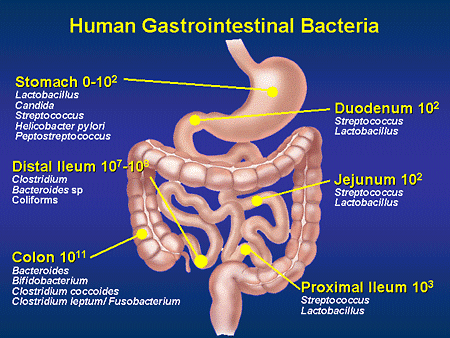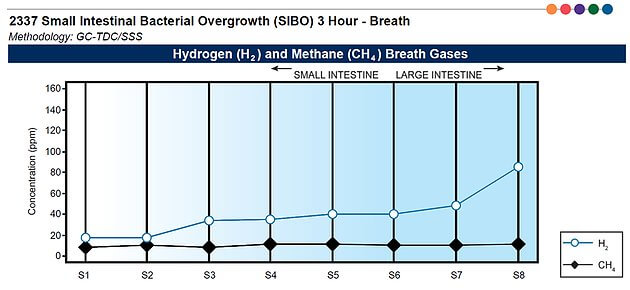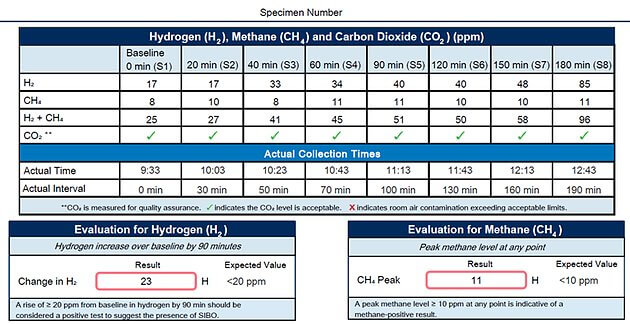What is SIBO?
Small Intestinal Bacterial Overgrowth (SIBO) is a functional condition in which there is bacterial growth in the stomach or upper portion of the small intestine.

The stomach and upper small intestine is relatively sterile compared to the large intestine. As you can see by the above graphic, this area typically houses hundreds of bacteria, where as the colon houses hundreds of millions of bacteria. Thus even bacteria that are normally found in the gastrointestinal system might be found in too high abundance in the upper GI system and cause problems.
What are the Symptoms of SIBO?
-
Nausea/Vomiting
-
Bloating/Flatulence (particularly with simple carbohydrates)
-
Acid Reflux
-
Easily full / Poor appetite
-
Diarrhea or Constipation
-
Malnutrition/Weight Loss
-
Fatigue
-
Rashes
-
Acne
-
Rosacea
-
Immune system dysfunction: Eczema, Asthma
-
Depression
-
Joint Pain
What Causes SIBO?
-
Diabetes
-
Overuse of medications (antibiotics, steroids, oral hormones, anti-reflux medications)
-
Metabolic dysfunction / Hypothyroidism
-
Overactivation of the stress system
-
Excess estrogen
-
Low stomach acid or digestive enzymes
How is SIBO Diagnosed?
Unlike colonic dysbiosis, which can be diagnosed by blood, stool, or urine testing, the gold standard for diagnosis of SIBO is a breath test.
A sample of lactulose is ingested and then at various points over a time period of 2-3 hours, the breath is analyzed for hydrogen and methane. In a patient who has SIBO, the small intestinal bacteria will metabolize the sugar and produce either of these gases. The diagnostic criteria for a positive test is a change in baseline hydrogen greater than 20 ppm in the first 90 minutes OR a peak methane level greater than 10 ppm at any point.


How is SIBO Treated?
The mainstay of treatment of SIBO is elimination of the abnormal bacteria. This can be accomplished using antibiotics or an herbal antimicrobial regimen. While antibiotic regimens (often involving Rifaximin) have been generally considered to be standard, newer evidence suggests that herbal antimicrobial regimens may be equally effective to antibiotic regimens.
Additional supportive treatments may include optimizing digestion with acid or enzyme support, enhancing gut motility/migration, and temporary avoidance of fermented foods (sauerkraut, kimchi, miso, kombucha, yogurt/dairy, etc).
Additionally, it is important to work with your Functional Medicine practitioner to address the underlying cause of the SIBO. For example, if a SIBO treatment protocol is done, but there is underlying metabolic dysfunction that is not addressed, then treatment will likely be unsuccessful or symptoms will return in the future.

